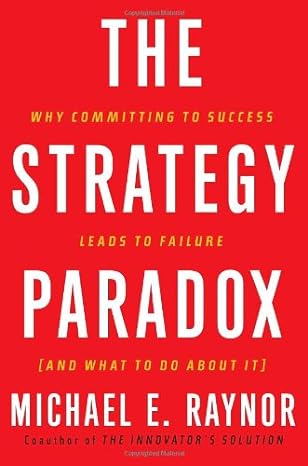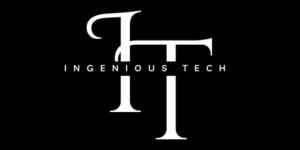Main Topic
The book explores the paradoxical nature of strategic decision-making, arguing that unwavering commitment to successful strategies can eventually lead to failure.
Key Ideas or Arguments
- Exploration of Success and Failure: Raynor delves into the dynamic between success and failure, challenging the notion that what works well initially will continue to do so in the long term.
- Strategic Commitment Dilemma: The author presents the strategic commitment dilemma, emphasizing the difficulty in balancing commitment to successful strategies while remaining adaptable to change.
- Case Studies and Analysis: Through case studies and analysis, Raynor illustrates the pitfalls of unyielding commitment to successful strategies and provides insights into strategic decision-making.
Chapter Titles or Main Sections
- The Strategy Paradox: Raynor introduces the paradoxical nature of strategic decision-making, setting the stage for the exploration of the commitment-success-failure dynamic.
- The Success Trap: Examining cases where initial success led to eventual failure, this chapter highlights the risks associated with prolonged commitment to successful strategies.
- The Commitment Spectrum: Raynor introduces the concept of the commitment spectrum, illustrating how organizations navigate the delicate balance between commitment and flexibility.
- Adaptability: The Art of Balancing: This chapter explores the crucial role of adaptability in maintaining a successful strategy over time and avoiding the pitfalls of excessive commitment.
- Strategic Decision-Making in a Dynamic Environment: Analyzing the impact of external factors on strategic decision-making, Raynor provides insights into the challenges of adapting strategies in a constantly changing environment.
Key Takeaways
- Success is Not Forever: The book emphasizes that success is not guaranteed to last indefinitely, urging businesses to balance commitment with adaptability.
- Adaptability as a Core Competency: Raynor suggests that adaptability should be considered a core competency, crucial for sustained success in a dynamic business landscape.
Author’s Background and Qualifications
Michael E. Raynor is an experienced strategist and author, known for his work in the field of business strategy. He holds a [mention specific qualifications or positions, if available].
Comparison to Other Books
Compared to other books on business strategy, Raynor’s work stands out for its focus on the paradoxical relationship between commitment and success, offering a unique perspective on strategic decision-making.
Target Audience
The book is geared towards business leaders, strategists, and professionals involved in decision-making within organizations.
Reception or Critical Response
The Strategy Paradox has received positive reviews for its thought-provoking insights and practical relevance to the challenges of contemporary strategic management.
Publisher and First Published Date
Published by Currency, an imprint of Doubleday, the book was first published in 2007.
Recommendations
- “Good Strategy Bad Strategy” by Richard Rumelt.
- “The Innovator’s Dilemma” by Clayton M. Christensen.
Biggest Takeaway
Success can be transient, and adaptability is a crucial competency for businesses to navigate the dynamic landscape, challenging the conventional wisdom of unwavering commitment to successful strategies.



